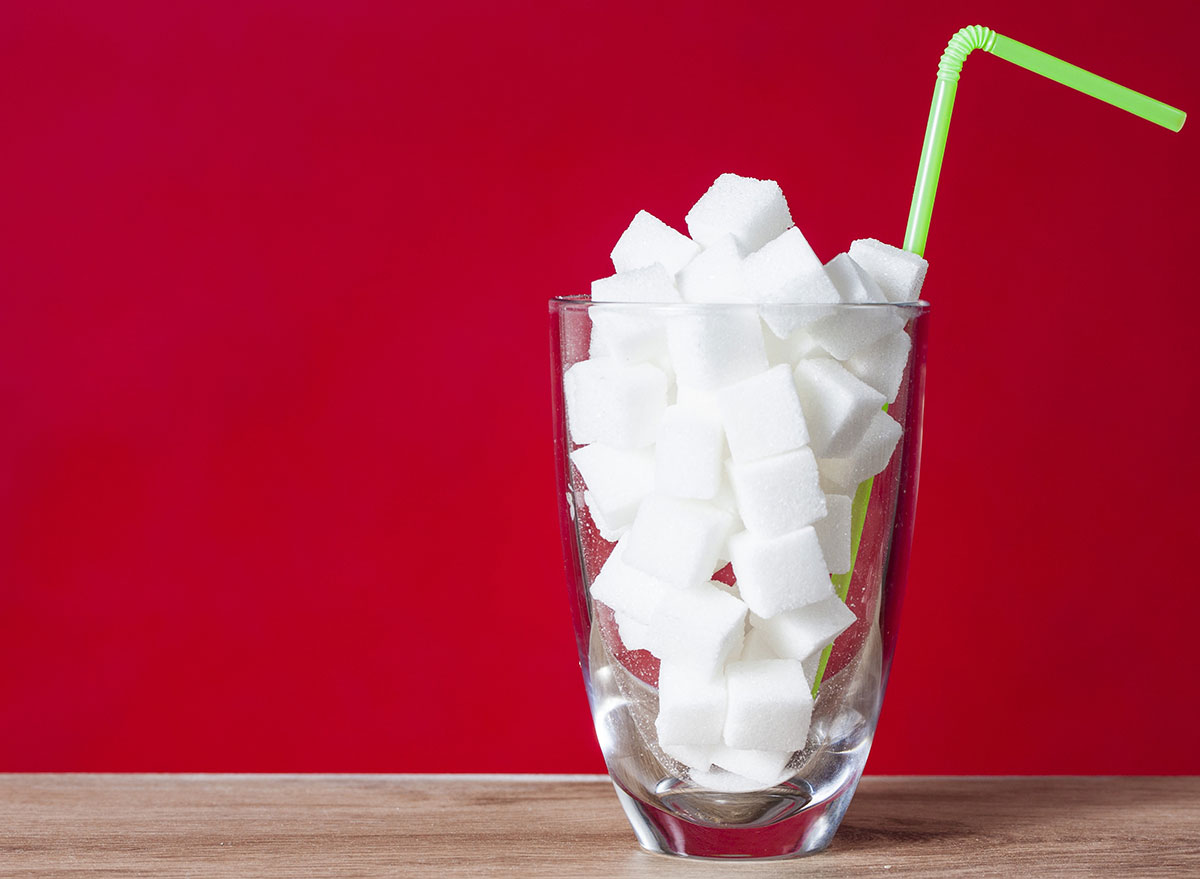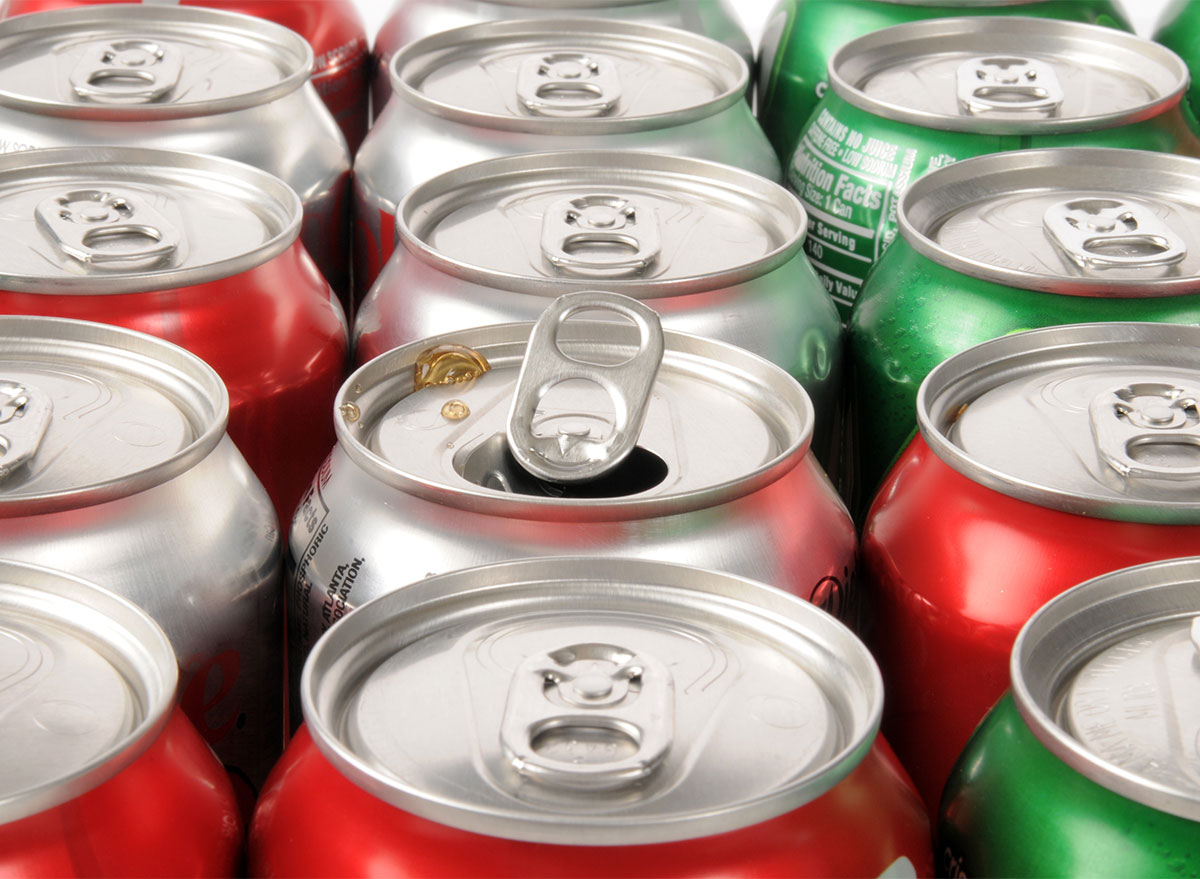Surprising Side Effects Soda Has On Your Immune System, Says Science

It’s no news that soda isn’t great for you, but you may only be thinking in terms of your waistline or even your heart health. Your immune system, on the other hand, may be overlooked.
Since soda is primarily made of sugar and sugar is known to weaken immune function, it’s fair to say that soda can wreak havoc on your body’s ability to combat illness, correct? Below, we break down just five ways routine soda consumption can pose a threat to your immunity, and after, don’t miss 15 Underrated Weight Loss Tips That Actually Work!
Feeds bad bacteria.

Just one 12-ounce can of Coca-Cola contains 39 grams of added sugars, which can cause a host of health issues if consumed in excess—and all the time. In fact, sugar is a breeding ground for bacteria and viruses to spread throughout the body. In general, sugar also suppresses the immune system, because it curbs key cells that help keep bacteria out. So, if you’re going to have a can of Coke, make sure to limit your consumption to just once a week if you can.
Get even more healthy tips straight to your inbox by signing up for our newsletter!
Increases your risk of infection.

This goes for everyone, but it’s an even greater concern for those with type 2 diabetes. The sugar in soda affects your immune system’s white blood cells, and these all-important cells are responsible for fighting infection. This is why white blood cells are commonly referred to as the “killer cells.” Those who have type 2 diabetes are already susceptible to other serious health complications, such as adverse symptoms of COVID-19, so it’s critical that they keep their non-diet soda consumption low.
Heightens your risk of type 2 diabetes.

Cracking open a can of Dr. Pepper (or two) each afternoon may not only cause you to yo-yo between feeling energized and sluggish, but it may also increase your risk of type 2 diabetes. Routinely drinking sugar-sweetened beverages can decrease your insulin sensitivity, which is a major risk factor for developing type 2 diabetes. Aside from cutting soda out of your diet, other ways you can improve insulin sensitivity is by removing saturated fats found in processed foods and red meat as well as by implementing a diverse exercise routine.
Inflammation.

Drinks like Sprite and Pepsi are loaded in added sugars, which can stoke inflammation in the body which may not only hinder your immune system but can also heighten your risk of developing chronic disease later down the road. One clinical trial even found that people who drank regular soda—versus those who drank diet soda, milk, or just water—had higher levels of uric acid, which is known to promote inflammation and even insulin resistance (a major indicator of type 2 diabetes).
Increased risk of obesity.

Believe it or not, carrying too much excess weight can have a negative impact on your immune system, and regularly drinking soda can cause weight gain over time. Soda is a beverage that offers what’s called “empty calories” meaning that, while it costs you calories, none of them offer nutritional value. In fact, the calories in soda do the exact opposite of providing health benefits.
According to the Obesity Action Coalition, several studies have shown that obesity can impair immunity in a variety of ways, from decreased cytokine production to altered lymphocyte function. As Brittany Busse, MD, associate medical director at WorkCare explained in an article about melatonin and coronavirus, anti-inflammatory cytokines are necessary for proper immune function. Lymphocytes, on the other hand, white blood cells that are a part of the immune system that help fight invading viruses and toxins.
For more, be sure to check out Popular Sodas That May Be Linked to Liver Damage, According To Science.








